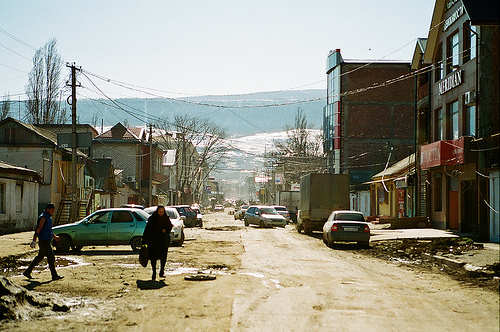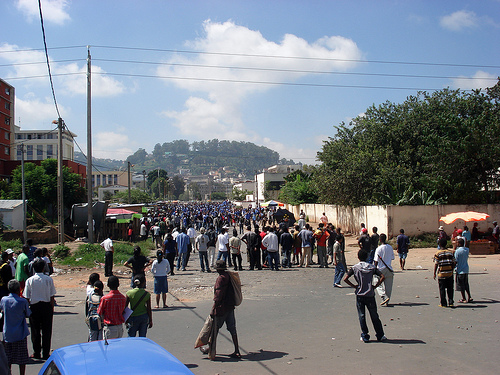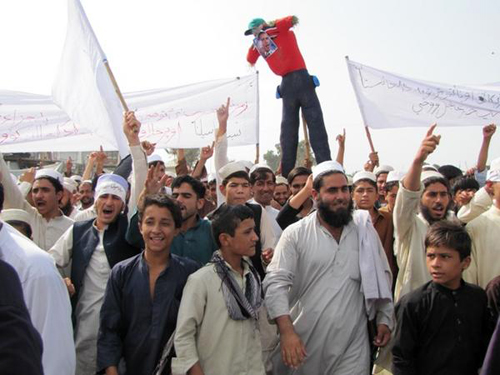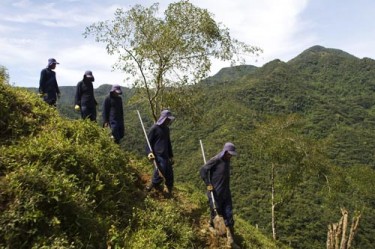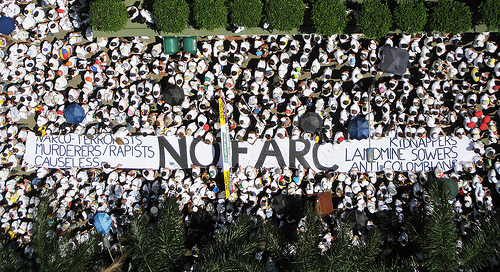
Despite President Juan Manuel Santos’ wish [es] for discretion, news broke [es] in late August that the Colombian government was to begin negotiations with the Revolutionary Armed Forces of Colombia (FARC). This was finally confirmed by Santos on September 4 during a televised speech that outlined that the government’s negotiations [es] with FARC would seek an end to the armed conflict and drug trafficking. Both sides will also discuss victims’ rights, rural development and the participation of FARC in Colombia’s democratic process. Fearing a repeat of the last round of failed negotiationsin 1999-2002, Santos also said that no amnesty would be granted for FARC leaders and that military operations would continue. Minutes later, FARC’s leader, Timoleón Jiménez (‘Timochenko’) appeared in a broadcast from Havana, Cuba and declared that FARC is truly committed to a “civilized dialogue” that would end the decades-old conflict.

